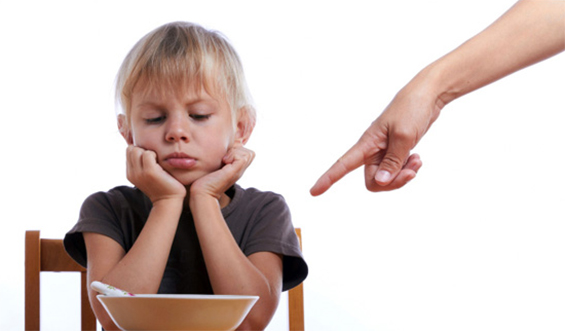
A new study shows that when parents use either restriction or pressure-to-eat measures, children and adolescents have a higher risk for becoming overweight and/or having eating disorders, according to lead author Jerica M. Berge of the University of Minnesota Medical School in Minneapolis.
According to Reuters Health, she and her team analyzed data from two studies involving over 3,000 parents and over 2,000 teens. The teenagers had height and weight measurements taken by trained school professionals, and parents completed a questionnaire at their homes which shared their heights and weights. Parents were asked how often they encouraged their child to eat more at mealtimes and how often they restricted sweets, high-fat foods, or their child’s favorites foods.
In 1,200 cases, parents were overweight or obese but their kids were not. In almost 900 cases, both parent and child were overweight. In about 700 cases, both were not overweight, and in 300 cases the parent was not overweight, but the teen was.
Food restriction was most common when pairs were both overweight or obese compared with those who were both not overweight or who differed between parent and child. Pressuring kids to eat was common when both parties were not overweight, compared to pairs who were overweight or had differing weight statuses.
Researchers are not clear whether parent feeding practices go on to influence future eating and weight status in adolescents, since the study took place at one time point, said Clare Collins, professor in nutrition and dietetics at The University of Newcastle in Callaghan, Australia who wasn’t involved in the study. Berge added:
“The problem with restricting food from a child or pressuring a child to eat more is that prior research has shown that it may have unintended consequences such as, a child becoming overweight or obese, or engaging in disordered eating behaviors such as, binging or purging,” Berge said.
“Rather than restricting or pressuring your child to eat, it is more helpful for parents to make sure that there are a variety of healthy food options in the home, or on the table, for children to eat and then allow the child to decide how much they eat,” she said.
Berge also stated that childhood obesity is linked to other health problems such as heart disease and Type 2 diabetes, writes WebMD’s Randy Dotinga. She explained that parents who are concerned about a child’s food intake should consult a physician.
Helping children make their own decisions about healthy food, physical activity, and regulating their eating gives them the confidence to choose correctly. Parents should provide children with plenty of encouragement and support when they see good choices being made.
Laura Hubbs-Tait, a human development professor and parenting specialist at Oklahoma State University in Stillwater, said the study does not prove that parents act in certain ways such as pressuring them to eat food or restricting food specifically because of how much they or their kids weigh. While the study is valid and useful, she says, more research will be needed to confirm this notion.
Berge did say the findings may help health care providers look at parents and their kids together and be able to determine who, based on their individual weights, may be at the highest risk for poor eating habits.




